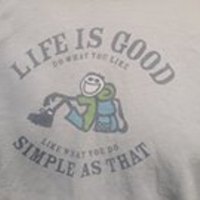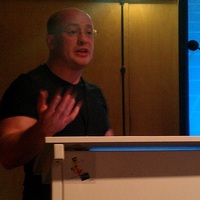Handbook on Evolution and Society: Toward an Evolutionary Social Science, edited by Jonathan H. Turner, Richard Machalek, and Alexandra Maryanski (Boulder, CO: Paradigm, 2015): 572-608., 2015
Within the past few years, theoretical biology, evolutionary social science, and evolutionary lit... more Within the past few years, theoretical biology, evolutionary social science, and evolutionary literary study have been correcting basic mistakes, producing new concepts, and reaching a more complete and adequate understanding of human behavior, including cultural and literary behavior. This chapter integrates these new concepts and demonstrates how they can be used to understand specific literary works. Separate sections are devoted to ideas from theoretical biology about the sources of cooperation in all living things, to ideas from the social sciences about human social organization, to ideas from evolutionary aesthetics about the adaptive function of the arts, and to ideas from literary theory about how meaning works in fiction. A section discussing specific literary examples illustrates the way the arts help generate group identity, integrate individuals into groups, and mediate between the needs of individuals and the claims of groups. Seven concepts from the research on evolved human sociality are used to organize the literary examples: dominance, reverse dominance, internalized norms, leadership, strong reciprocity, legal institutions, and legitimacy.










Uploads
Books by Joseph Carroll
Papers by Joseph Carroll
In both reality and fiction, meaning consists of experiences in individual minds: sensations, emotions, perceptions, and thoughts. Writing and reading fiction involve three sets of minds, those of authors, readers, and characters. Meaning in the minds of authors and readers emerges in relation to the experiences of fictional characters. Characters engage in motivated actions. To understand minds and meaning in fiction, researchers need analytic categories for human motives. A comprehensive model of human motives can be constructed by integrating ideas from evolutionary biology, anthropology, and psychology. Motives combine in different ways to help create different cultures and different individual identities, which influence experience in individual minds. The mental experiences produced in authors and readers by fictional narratives have adaptive psychological functions. By encompassing the minds of authors, characters, and readers within a comprehensive model of human motives, this article situates the psychology of fiction within the larger research program of the evolutionary social sciences.
Keywords: perspective taking, motives, psychology of reading, biocultural theory, evolutionary literary theory
In both reality and fiction, meaning consists of experiences in individual minds: sensations, emotions, perceptions, and thoughts. Writing and reading fiction involve three sets of minds, those of authors, readers, and characters. Meaning in the minds of authors and readers emerges in relation to the experiences of fictional characters. Characters engage in motivated actions. To understand minds and meaning in fiction, researchers need analytic categories for human motives. A comprehensive model of human motives can be constructed by integrating ideas from evolutionary biology, anthropology, and psychology. Motives combine in different ways to help create different cultures and different individual identities, which influence experience in individual minds. The mental experiences produced in authors and readers by fictional narratives have adaptive psychological functions. By encompassing the minds of authors, characters, and readers within a comprehensive model of human motives, this article situates the psychology of fiction within the larger research program of the evolutionary social sciences.
Keywords: perspective taking, motives, psychology of reading, biocultural theory, evolutionary literary theory
This Research Topic aims to demonstrate that imaginative culture is an important functional part of evolved human behavior—diverse in its manifestations but unified by species-typical sets of biologically grounded motives, emotions, and cognitive dispositions. The topic encompasses four main areas of research in the evolutionary human sciences: (1) evolutionary psychology and anthropology, which have fashioned a robust model of evolved human motives organized systemically within the phases and relationships of human life history; (2) research on gene-culture coevolution, which has illuminated the mechanisms of social cognition and the transmission of cultural information; (3) the psychology of emotions and affective neuroscience, which have gained precise knowledge about the evolutionary basis and neurological character of the evolved emotions that give power to the arts, religion, and ideology; and (4) cognitive neuroscience, which has identified the Default Mode Network as the central neurological location of the human imagination. By integrating these four areas of research and by demonstrating their value in illuminating specific kinds of imaginative culture, this Research Topic aims at incorporating imaginative culture within an evolutionary conception of human nature.
Imagination:
Evolution, Mechanisms and Functions
Myth and Religion
Aesthetic Theory
Music
Visual and Plastic Arts
Video Games and Films
Oral Narratives and Literature
Evolutionary Perspectives on Imaginative Culture widens the scope of evolutionary cultural theory to include much of what “culture” means in common usage. The contributors aim to convince scholars in both the humanities and the evolutionary human sciences that biology and imaginative culture are intimately intertwined. The contributors illuminate this broad theoretical argument with comprehensive insights into religion, ideology, personal identity, and many particular works of art, music, literature, film, and digital media.
Course Description:
Over the past forty years, the evolutionary perspective has gradually developed into an explanatory framework that encompasses all things human: anatomy, physiology, behavior, and the products of the human mind. The evolutionary human sciences are now entering a mature phase. They have developed a sophisticated understanding of basic human motives and the logic of the human life cycle. The one most important weakness in much evolutionary psychology, until recently, has been an inadequate understanding of “culture,” and especially of “imaginative culture”: religion, ideology, myth, the arts, and intellectual life. That weakness is now being corrected by evolutionary thinking emerging from the humanities. Evolutionary studies of literary works have been entering a phase of mature command. This course is designed to acquaint students with the total set of ideas that enter into a biocultural understanding of prose fiction, graphic narratives, and film.
The premise of this course is that works of fiction center on the main substantive areas of human motives: survival, mating, parenting and family life, growing up, establishing an individual identity, engaging in the social life of a community, experiencing conflicts between communities, and pursuing the life of the mind. In each session of the course, we shall read background psychological studies on each of these themes and also read fictional works that center on the theme for that session.